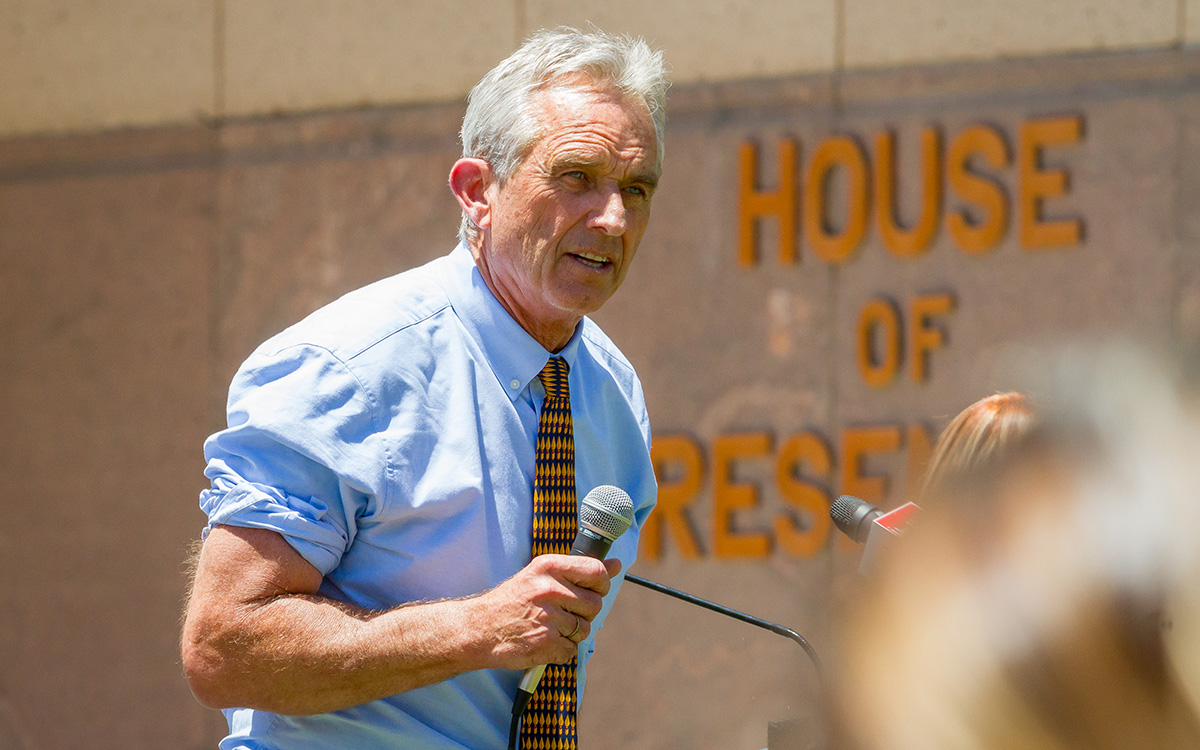Opinions
Gay Games should boycott Hong Kong over Peng Shuai
Join with others in holding China accountable

There are many reasons to boycott China, not least of which is its treatment of the Uyghurs; an unofficial U.K. tribunal this week said Chinese President Xi Jinping is responsible for “genocide, crimes against humanity and torture” of minorities in Xinjiang.
Add to the list the mysterious and alarming case of Chinese tennis star Peng Shuai, who disappeared for two weeks after publicly accusing Zhang Gaoli, a member of China’s ruling committee, of sexual assault. Within 20 minutes of her post on China’s equivalent of Twitter, government censors scrambled to scrub any mention of it from the Internet, as the New York Times reported Friday. China’s efforts to deny anything was amiss by posting photos and videos of Peng were clumsy and ineffective and quickly ridiculed by the twitterverse.
Earlier this month, the Women’s Tennis Association took the brave step of suspending all tournaments in China in protest of her obvious detention and censoring.
“While we now know where Peng is, I have serious doubts that she is free, safe and not subject to censorship, coercion and intimidation,” Steve Simon, chief executive of the Women’s Tennis Association, said in a statement as reported by the New York Times. “If powerful people can suppress the voices of women and sweep allegations of sexual assault under the rug, then the basis on which the WTA was founded — equality for women — would suffer an immense setback. I will not and cannot let that happen to the WTA and its players.”
So far, the WTA is the only major sports organization to announce a boycott of China, but the organizers of Gay Games 11, scheduled for 2023 in Hong Kong, should be next.
Gay Games organizers excitedly announced a new logo for the 2023 Games two weeks ago, adding the colors of the Progress Pride flag to recognize communities of color. But so far those same organizers are silent on the plight of Peng, a woman of color herself, and a fellow athlete who was targeted by China for making an accusation of assault.
When asked by the Blade if the Federation of Gay Games would consider a boycott of China, it issued a cowardly statement that ignored the central question of Peng’s plight and well being.
“The Federation of Gay Games continues to monitor the situation in Hong Kong regarding COVID-19, the National Security Law and all other aspects that affect the safety and security of our event,” Sean Fitzgerald, co-president of the Federation of Gay Games, told the Blade in a statement. “We are committed to hosting Gay Games 11 in Hong Kong in November 2023.”
The Federation of Gay Games’s claims of supporting people of color and athletes of color ring hollow when its leaders won’t even mention Peng’s name in response to a direct question about her plight.
The Federation should reconsider its posture, denounce China’s treatment and censorship of Peng, and move Gay Games 11 to another locale in protest.
Boycotts are divisive tactics and one Hong Kong LGBTQ activist this week told the Blade she doesn’t support the idea. “In Hong Kong, the team behind Gay Games has really worked tirelessly to bring it to Hong Kong and it will be a very good opportunity to showcase diversity and people working together and the human spirit at its best,” Gigi Chao told the Blade.
But what does it say about the queer community if we fail to take a stand even after the WTA has acted so boldly and decisively in its own boycott? The Biden administration on Monday announced a diplomatic boycott of the 2022 Winter Olympics that are slated to take place in Beijing in February. A Gay Games boycott would be consistent with our own government’s efforts to hold China accountable for Peng, the Uyghurs, and other human rights abuses.
The Federation of Gay Games has an opportunity to stand in solidarity with the WTA and Peng and send a powerful message that the LGBTQ community will not reward a regime that engages in overt censorship while covering up allegations of sexual assault by sending hundreds of athletes and millions of dollars to Hong Kong in 2023.
Kevin Naff is editor of the Washington Blade. Reach him at [email protected].
Opinions
Open or closed? No, not your bar tab
The swinging couple’s dream is the hopeless romantic’s nightmare

(Editor’s note: This is the first of a two-part feature on open relationships.)
Boy meets boy. Boy likes boy.
For the first time in a long time, boy feels that thing, that connection, that spark with boy.
Then one day boy grabs dinner with boy. Boy’s smiles and laughs throughout are equal parts sincere and excited. Boy wonders, is this the one? After all this time, has it finally happened?
Boy takes boy home. Boys cuddle. Boys kiss. Boys have amazing sex. And in the glowing aftermath of what can only be described as a perfect night, boy spots an unnoticed ring.
“What’s that?” boy asks.
“My wedding ring,” the other replies. “I thought you knew.”
When I returned to D.C. in 2016, I quickly received a lecture on why open relationships were the future of queer love. Nearly eight years later, they’ve more than just sprouted among the gay scene – they’ve overtaken the landscape. Simultaneously, what became the swinging couple’s dream descended into the hopeless romantic’s nightmare.
It’s not all so bad given what comes with it: a lot of sex, particularly with hotties who were off-limits before. However, alongside that sex comes a minefield of rules and regulations open couples create but horny singles must abide by. One wrong move, and you’re the villain.
Truthfully, I’ve soiree’d with open couples before, both separate and together. On the bad end, things get awkward – particularly between me and the other partner. On the good end, I might come home satisfied, but the moment I hop on my couch to watch rerun television, I realize I’m back to where I started: alone.
If you’re like me and not yet onboard with an open relationship, it’s also easy to feel like a fish out of water. Queer social outings can sometimes become a Swinging 70’s Redux, with partners passed around like gay dishes at a potluck. Next up: ass, and lots of it.
This leads to another issue: in a scene full of open couples, detached sex is more than just accepted – it’s often expected. The moment you let emotional attachment enter the equation, you lose. Now even the singles are trained to run away, for your attachment may prevent them from jumping onto – or into – the next in their queue. And I can’t even get upset, for I’ve been that guy before.
For all these reasons, I wanted to dive further into the rise of open relationships. All I needed was someone in an open relationship willing to speak on the matter.
“That’s easy,” quipped my coworker, Chad. “Just open Grindr.”
Chad and I met working at the pub, and under similar circumstances; he lost his day job a few months after me losing mine. We quickly found solace in our shared circumstance, and now he and I hang in the kitchen of a gay bar divulging details of our sex lives and pining to meet the man of our dreams.
And Chad wasn’t wrong, for these days Grindr is chockfull of profiles in open relationships looking to play. Yet it turned out I wouldn’t need Grindr, for at that moment, in pranced our fellow coworker, Scott.
There’s no better way to describe Scott than this: They’re a bundle of positivity and joy. Oddly, I didn’t meet Scott at the bar but rather at a coffee shop in Petworth in 2018, where they were my regular barista. Little did I know we’d work together half a decade later. Life is funny that way, isn’t it?
Outside the bar, Scott is an actor in productions across the DMV. Naturally, they became my biggest inspiration for abandoning my career for the arts. Following a bar shift last summer we smoked a blunt and talked about it. They taught me to tune out the noise and follow my heart.
Together, Chad and Scott became my newfound support system. In a way we’re like the Three Musketeers – equally gay, just a lot more working class.
Of course, as soon as Scott entered, I had to ask: “Are you and your partner open?”
Scott smiled coyly. “Oh yes, honey.”
So as fate had it, here in the kitchen of a gay bar, I had both ends of the open/closed spectrum represented. On one side Chad, a self-proclaimed romantic seeking monogamy; on the other, the fully open Scott.
While there were many takeaways from our conversations on the matter, I distilled six truths in the debate between open and closed relationships. But please, take these with a grain of salt – I am just a barback, after all.
- Monogamy is rooted in tradition.
For many of us, gay or straight, finding our one and only was a dream of our youth. Mine was supposed to be Colby Donaldson from season 2 of the hit TV show “Survivor,” but life had other plans.
Yet many never dissect where this desire stems from. Our culture is inundated with stories of princesses rescued by their prince and true love’s kiss setting us free. There seemed to be a script we had to follow, and if we didn’t, no worries – God would simply banish us to hell.
This is a common starting point for both the monogamist and the open connoisseur. When I asked Chad what drew him toward monogamy, he replied, “Honestly, it was how I was raised: settle down, have kids, and carry on the family name. I didn’t have any non-traditional role models.”
Meanwhile, Scott’s past reservations toward open relationships were for similar reasons. “When I was younger, I was not pro-open relationship,” they told me. “I didn’t understand the intricacies of it. I didn’t understand the nuances of it. I also grew up in a very conservative, Catholic household.”
Both responses touch on a key argument in the pro-open saga: that closed relationships are often reflections of tradition, ranging from folklore to religion, and these traditions held queer people back for centuries. If queer means subverting these traditions, then monogamy is simply outdated. Or so they say.
- The desire to be open is biological.
Over time, Scott’s views on being open changed. “As I matured and grew into my queerness,” they started, “and saw friends with alternative lifestyles, I realized this is something I could be interested in.”
In Scott’s relationship, this led to an understanding of the core needs for them and their partner. “I knew my partner’s libido was higher than mine. For me, it came from a desire to allow my partner to experience something I wasn’t able to fulfill fully. I personally get a lot of pleasure knowing my partner can go out, meet people, and make connections, knowing at the end of the day we will be each other’s number one priority and person.”
Scott’s libido reference made me wonder: are open relationships taking off across the LGBTQ community, or specifically among sex-obsessed gay men? Realizing this conversation should probably be more inclusive, I made an arduous journey east – roughly 150 feet, to the front entrance.
Kelsey is a hot badass who works the door of the bar. She’s stylish, a fellow Aires like myself, and I once told Chad I thought she was Fabulous with a capital F. I realized then I’m getting gayer by the minute.
While Kelsey is currently in a closed relationship, she enlightened me to the status among lesbians. “It’s about 50/50 with the ones I know,” she replied. Honestly, this surprised me, mainly because I figured men were the ones dicking around.
Kelsey has also been in open relationships before, and she isn’t exactly closed to that route again. “I don’t think people were made for one person for the rest of their life,” she added. This reflected what Scott shared as well: “The human body craves sex to different degrees, and as you get older those degrees wax and wane.”
To me, both statements highlight that the desire to be with others sexually is natural for many, so caging that desire can feel confining. As queer people, we can all relate to that.
Next week: Part two looks at finding the right reasons for pursuing an open relationship.
Jake Stewart is a D.C.-based writer and barback.
Opinions
RFK Jr. a dangerous spoiler helping Trump
A reckless man now on the ballot in several swing states

Robert F. Kennedy Jr. is an embarrassment to his family, and to so many others like me who supported his father and uncle. He uses his last name to try to gain credibility and that is sad.
His real claim to fame is being an anti-vaxxer and lying about what impact vaccinations will have on the health of the American people. Were it up to him, and God forbid he had been president during the COVID-19 pandemic, millions more Americans would have died. Because of his dangerous lies, many more will die of diseases once nearly eradicated, like measles.
Listening to RFK Jr. is difficult because of his voice. The cause of that is Spasmodic dysphonia, a rare neurological condition, in which an abnormality in the brain’s neural network results in involuntary spasms of the muscles that open or close the vocal cords. He has said, “I feel sorry for the people who have to listen to me.” I am also sorry for people who listen to him, but not because of his disability. I am sorry for those who listen to him because of the garbage he spouts when he speaks. He is actually a man with dangerous ideas, and one whose outsized ego could end up getting us Donald Trump as president.
Kennedy is an environmental lawyer who recently made the bizarre statement, “Biden is a ‘much worse’ threat to democracy than Trump.” Like Trump, Kennedy is forever making statements like that and then trying to weasel out of them like he has with this one. The statement reminded me of when Susan Sarandon said in 2016, “there is no significant difference between Donald Trump and Hillary Clinton.”
Kennedy recently sent out a campaign email saying the Jan. 6 Capitol Hill rioters were simply “activists.” Then when the blowback got too strong, he blamed that on someone else. Kennedy is a lawyer with no real government or foreign policy experience. Unfortunately, that doesn’t seem to matter to many Americans, even though Trump clearly proved it should. We live in an often dangerous, and very complicated, world. A president has to deal with issues that could mean life or death, such as the wars in Ukraine and the Middle East.
Like Trump, RFK Jr. is on his third wife. His current wife is the talented actress, Cheryl Hines. When asked whether she agrees with his views Hines said, “there are some political topics she differs on with her husband, which she did not disclose.” She did mention one and referenced “the time Kennedy, made a comparison to the Holocaust while delivering a speech at a rally against vaccine mandates. She assured her Twitter followers she found the comparison ‘reprehensible.’ We can all agree it was reprehensible but so is much of what RFK Jr. says.
Kennedy recently named Nicole Shanahan as his running mate. Her ex-husband is Sergey Brin, one of the founders of Google. She is a California lawyer involved in the tech field. It looks like she bought her way onto the ticket donating millions of dollars, including $4 million, toward the Super Bowl ad Kennedy produced. He will use her money to help get him on ballots across the nation. As of April 10th Kennedy is already on the ballot in Utah, and his campaign has gathered the necessary signatures to be on the ballot in New Hampshire, Nevada, Hawaii, North Carolina and Idaho, according to a recent campaign news release.
If he gets on swing state ballots, it heightens his chance of being a spoiler. The reality of this was touted by one of his staffers who when talking to a group of Republicans about the campaign in New York, said “The only way that Trump can even see the remote possibility of taking New York is if Bobby is on the ballot. If it’s Trump vs. Biden, Biden wins. Biden wins six days, seven days a week. With Bobby in the mix, anything can happen. How do we block Biden from winning the presidency? Again, that’s the number one priority for me.”
After the blowback, Kennedy said she didn’t speak for the campaign and let her go. But in reality, when looking at who to choose as my candidate I look at the people he/she surrounds themselves with. Who is advising them? I guess for Kennedy it doesn’t really matter since he won’t be elected. But it is time people like Kennedy stop trying to fool the American people into thinking they could win.
He will simply get the political epitaph ‘Spoiler’ if Trump wins. No one will remember him for anything else. Let’s pray, and work hard, to see that doesn’t happen.
Peter Rosenstein is a longtime LGBTQ rights and Democratic Party activist. He writes regularly for the Blade.
Opinions
The High Road – Walking the Pathway to National Cannabis Legalization
Grassroots organizing has been the driving force behind shifting public perception and pushing for policy changes in the cannabis industry

As we gear up for a major election year, the buzz around cannabis legalization is getting louder. Policymakers are starting to see the need for comprehensive reform, while advocates and small business owners in the industry are cautiously optimistic about the future. But let’s not kid ourselves, this system was designed to keep certain communities out, and it’s crucial that we continue to address these deep-rooted inequities as we blaze the trail forward. A step towards legalization that doesn’t prioritize equity and dismantle the barriers that have held back marginalized groups would be a major bummer. In this op-ed, we’re going to take a groovy journey through the evolution of grassroots organizing in the cannabis industry and highlight the importance of social equity in achieving true national cannabis legalization and boosting our humanity along the way.
Over the years, I’ve been right in the thick of it, helping to build grassroots organizations like Supernova Woman and Equity Trade Network. These groups have been on the frontlines, fighting for cannabis programs in Oakland and San Francisco. I’ve also rocked my own brand, Gift of Doja, and organized the first Cannabis Garden at a major neighborhood street fair, Carnaval San Francisco. I even served as the chair of the first Cannabis Oversight Committee in the nation. But the real magic has always happened in when working in coalitions. Each individual and organization brings a unique piece to the puzzle. Grassroots organizating is as challenging as crafting a democratic society but is worth the effort in generating workable implementable solutions. Collective efforts have been game-changers in shifting public opinion and paving the way for major policy changes at both the state and local levels.
As we navigate the path towards cannabis legalization, lobbyist and lawmakers can’t forget about the small business owners who have been grinding to build their dreams. Political advocacy and lobbying are important, but if we’re not uplifting the voices and experiences of those who have been fighting on the ground, we’re missing the mark. Big companies can hire lobbyists, but small business owners don’t have that luxury and if we are not in the room we are on the table. Coalitions allow for us to be in the room when we can’t physically be there. Our communities, especially people of color, have been hit hard by systemic oppression, from over-policing to mass incarceration and limited economic opportunities to limit our ability to be in the room of power and decision making.
Social equity needs to be front and center in any cannabis legalization efforts. It’s not enough to just remove criminal penalties or create a legal market. We need to actively work on repairing the damage caused by years of prohibition. That means fighting for resources, investment, and low-interest loans for small businesses. It means creating a tiered fee and tax structure that doesn’t crush the little guys. And it means opening up equity programs to all industries, not just cannabis. Social justice without economic access and repair is like a joint without a lighter – it just won’t spark the change we need. We have a responsibility to evolve the economy and break down unnecessary barriers. Activism, social justice, and economic reform are all connected, man.
Industry leaders, culture creators, advocates, and consumers alike, we all need to step up and promote social equity. It’s on us to support initiatives that provide resources, mentorship, and funding for individuals from affected communities to enter the legal cannabis market. And let’s not forget the power of our wallets. Buying from companies that align with our values and support the work we believe in can send a powerful message. Voting with our dollars might just be more impactful than showing up at the ballot box.
As we head into a major election year, the cannabis industry is at a crossroads. It’s a time for drumming up voter interest and for candidates to make promises that grassroots organizations have fought hard for. Small business owners will be navigating a tricky landscape, but we can’t lose sight of the power of collective work. By keeping social equity at the forefront, we can undo the harms of the past while building new frameworks that will shape a brighter future for all.
In conclusion, grassroots organizing has been the driving force behind shifting public perception and pushing for policy changes in the cannabis industry. But let’s not forget that true national cannabis legalization can only be achieved if we address social equity. It’s time for us to come together, listen to the voices of those most impacted, and walk the high road towards a future where cannabis legalization isn’t just about business opportunities, but also about healing and empowerment for all communities. Let’s light up a joint of social justice and blaze a trail towards a better tomorrow.
Nina Parks, Co-Founder of Equity Trade Network & Supernova Women [email protected]
-

 Africa4 days ago
Africa4 days agoCongolese lawmaker introduces anti-homosexuality bill
-

 District of Columbia14 hours ago
District of Columbia14 hours agoReenactment of first gay rights picket at White House draws interest of tourists
-

 World4 days ago
World4 days agoOut in the World: LGBTQ news from Europe and Asia
-

 Arizona18 hours ago
Arizona18 hours agoAriz. governor vetoes anti-transgender, Ten Commandments bill











